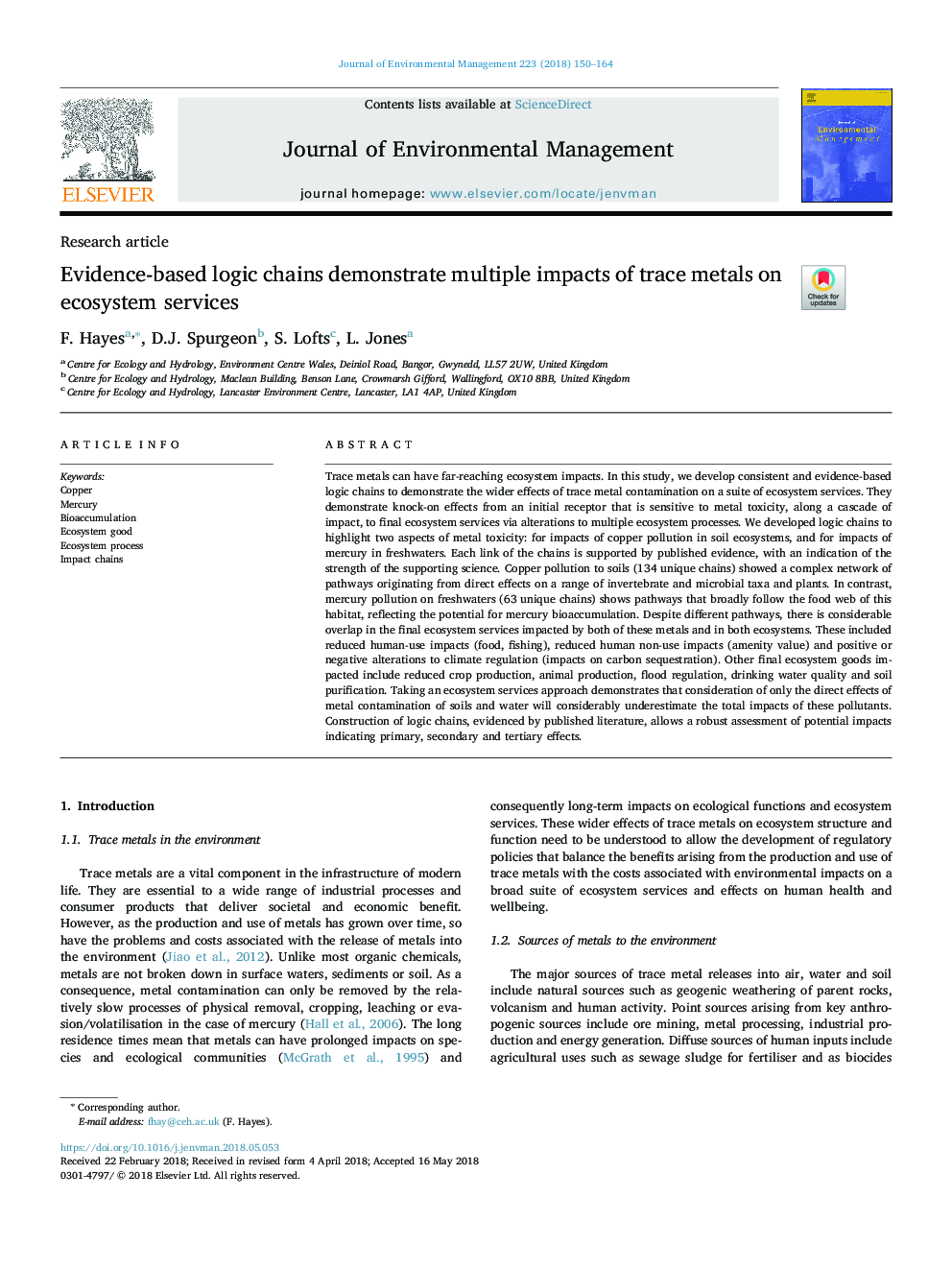| Article ID | Journal | Published Year | Pages | File Type |
|---|---|---|---|---|
| 7475804 | Journal of Environmental Management | 2018 | 15 Pages |
Abstract
Trace metals can have far-reaching ecosystem impacts. In this study, we develop consistent and evidence-based logic chains to demonstrate the wider effects of trace metal contamination on a suite of ecosystem services. They demonstrate knock-on effects from an initial receptor that is sensitive to metal toxicity, along a cascade of impact, to final ecosystem services via alterations to multiple ecosystem processes. We developed logic chains to highlight two aspects of metal toxicity: for impacts of copper pollution in soil ecosystems, and for impacts of mercury in freshwaters. Each link of the chains is supported by published evidence, with an indication of the strength of the supporting science. Copper pollution to soils (134 unique chains) showed a complex network of pathways originating from direct effects on a range of invertebrate and microbial taxa and plants. In contrast, mercury pollution on freshwaters (63 unique chains) shows pathways that broadly follow the food web of this habitat, reflecting the potential for mercury bioaccumulation. Despite different pathways, there is considerable overlap in the final ecosystem services impacted by both of these metals and in both ecosystems. These included reduced human-use impacts (food, fishing), reduced human non-use impacts (amenity value) and positive or negative alterations to climate regulation (impacts on carbon sequestration). Other final ecosystem goods impacted include reduced crop production, animal production, flood regulation, drinking water quality and soil purification. Taking an ecosystem services approach demonstrates that consideration of only the direct effects of metal contamination of soils and water will considerably underestimate the total impacts of these pollutants. Construction of logic chains, evidenced by published literature, allows a robust assessment of potential impacts indicating primary, secondary and tertiary effects.
Related Topics
Physical Sciences and Engineering
Energy
Renewable Energy, Sustainability and the Environment
Authors
F. Hayes, D.J. Spurgeon, S. Lofts, L. Jones,
